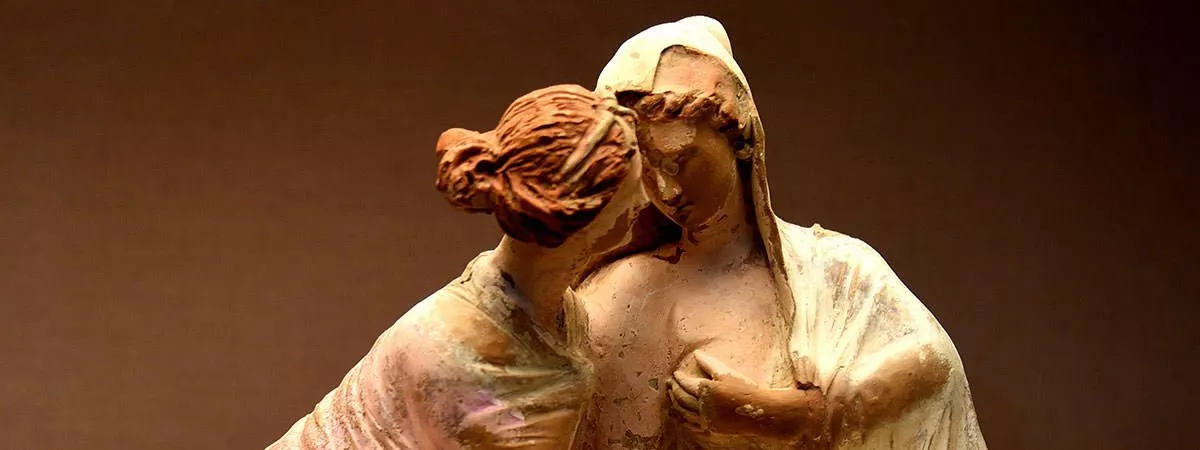In Ancient Greece, Demeter was the goddess of the harvest and agriculture, presiding over grains and the fertility of the earth. According to Greek mythology, Demeter was the daughter of Cronus and Rhea; and her father swallowed her at birth to prevent a prophesy. It was her brother Zeus that finally tricked Cronus to disgorge his children including Demeter. Zeus, who became the king of the Gods, had an affair with Demeter which led to the birth of Persephone. There are numerous myths featuring Demeter the most famous of which is the abduction, search and recovery of her daughter Persephone. Other important myths featuring Demeter include her educating Triptolemus about the art of agriculture; her cursing Erysichthon with an insatiable hunger; and her love affair with Iasion. Here are the 10 most famous featuring the Greek Goddess Demeter.
#1 The Birth of Demeter
According to Greek mythology, Cronus overthrew his father Uranus and ruled over the world along with his wife Rhea. However he was told that one of his children would go on to overthrow him like he had overthrown his father. Cronus had several children with Rhea but swallowed them all at birth. These children included Demeter. However, when her sixth child Zeus was born, Rhea hid him in a cave and instead gave Cronus a stone wrapped in his clothes which he swallowed. When Zeus came of age, he disguised himself as an Olympian cup-bearer; poisoned his father’s wine with a potion; and tricked him to drink it. This led to Cronus disgorging Zeus’ siblings: his sisters Hestia, Demeter and Hera; and his brothers Hades and Poseidon. Later, Demeter got involved in an affair with her brother Zeus and their union gave birth to the goddess Persephone who later went to become the queen of the underworld.
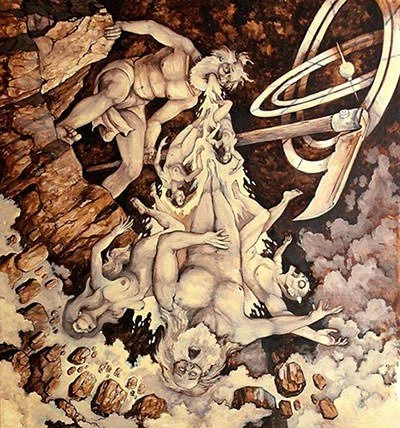
#2 Demeter And Persephone
Demeter was very fond of her first daughter Persephone. She gave her all her love, attention and devotion. Persephone brought a lot of joy and happiness to Demeter’s life and, as Demeter was the goddess of agriculture, crops started growing tall and bountiful; flowers covered every meadow; and trees grew tall into the sky. Persephone grew up to be a beautiful young goddess and started attracting the attention of male suitors, especially Hades, the god of the underworld. When Hades approached Zeus to ask for the girl’s hand in marriage, he had to face a clear rejection. Unable to accept the defeat, he hatched a plan to make Persephone his wife and abducted her in a chariot while she was picking flowers with her friends. After it became obvious that Persephone had gone missing, Demeter searched for her ceaselessly, preoccupied with her loss and her grief. As a result, the seasons halted and living things ceased their growth and began to die. Consequently, a terrible famine gripped the earth and Zeus sent his messenger, Hermes, to the underworld to bring Persephone back. Hades agreed to release her but tricked her into eating a pomegranate, the food of the underworld. He knew that anyone who consumed any part of the fruit became bound to return to the underworld every year. Therefore, Persephone had to live half the year with her mother while, during the other half, she would remain in the underworld with Hades. This is the mythological explanation of the changing seasons. When Persephone is with Demeter, crops grow and harvests are bountiful. However, when she is with Hades, Demeter falls into a gloomy state and crops get withered.
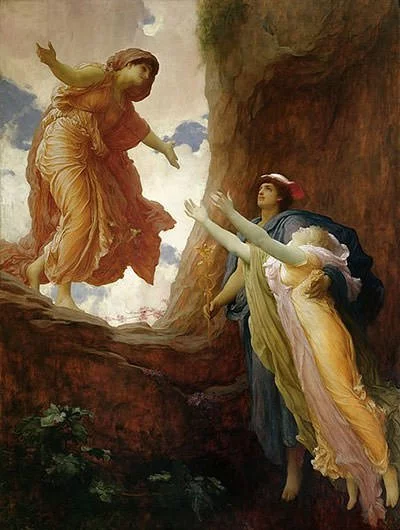
#3 Demeter And The Sirens
In Greek mythology, sirens were unique creatures who were generally depicted as half bird and half woman. They were singing enchantresses capable of luring passing sailors to their islands leading to their doom. However, if some sailor heard their song and escaped them, they were fated to die. Most famously, the sirens feature in Homer’s epic Odyssey. According to a myth, the sirens were originally friends of the goddess Persephone and used to guard her. However, they failed to protect her from being abducted by Hades. On hearing about their inability to stop Hades from abducting her daughter, Demeter was furious with anger. Finally, as punishment, she transformed the sirens into bird-like monsters.
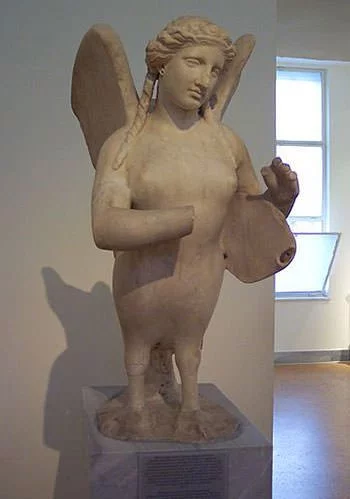
#4 Demeter And Triptolemus
In Greek mythology, Triptolemus was a mortal prince, the eldest son of King Celeus of Eleusis. Demeter, in the guise of an old woman named Doso, was searching all over Greece for her daughter Persephone who had been abducted by Hades. In the meanwhile, she received a hospitable welcome from Celeus. Celeus asked Demeter to nurse his sons Demophon and Triptolemus. When Demeter noticed that Triptolemus was sick, she fed him her breast milk. As a result, not only did he recover his strength but he instantly became an adult. Demeter also chose to teach Triptolemus the art of agriculture. After acquiring abundant knowledge from Demeter, he flew across Greece on a winged chariot to complete his mission of educating the whole of Greece, and the whole world, about the art of agriculture. Triptolemus is briefly mentioned in Eleusinian Mysteries as one of the original priests of Demeter, one of the first men to learn the secret rites and mysteries of Goddess Demeter.
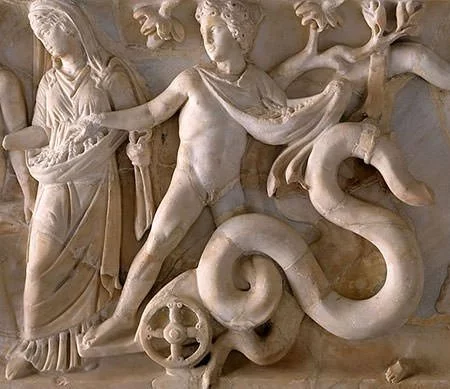
#5 Demeter And Ascalabus
Ascalabus was the son of a peasant-woman named Misme. While Demeter was wandering in search of her daughter Persephone, she arrived in Attica. In Attica, she visited the house of Misme, who greeted her warmly. As Demeter was exhausted and thirsty, Misme gave her the kykeon to drink, which was an Ancient Greek drink made mainly of water, barley and naturally occurring substances. Being extremely thirsty, Demeter emptied the vessel at one draught. Due to her drinking the kykeon greedily, Ascalabus laughed at her and ordered a whole cask. Demeter was annoyed at the boy’s conduct. In anger, she sprinkled the few remaining drops from her vessel upon him and thereby changed Ascalabus into a lizard.
#6 Demeter And Lyncus
Lyncus was a king of Scythia, a region of Central Eurasia. After Triptolemus took the responsibility to educate the whole world about the art of agriculture, he rode through his winged chariot and reached Scythia. Staying true to his mission, Triptolemus taught Lyncus the art of agriculture. However, the king was jealous and wanted to take credit for the agrarian art. Thus, though Lyncus received Triptolemus as a guest, he plotted his demise. At night, Lyncus tried to murder Triptolemus with a dagger while he was asleep. However, as Lyncus raised his hands to stab Triptolemus, Demeter intervened and grabbed his fist thus preventing the king from murdering Triptolemus. Moreover, Demeter punished Lyncus by turning him into a lynx, a medium-sized wild cat.
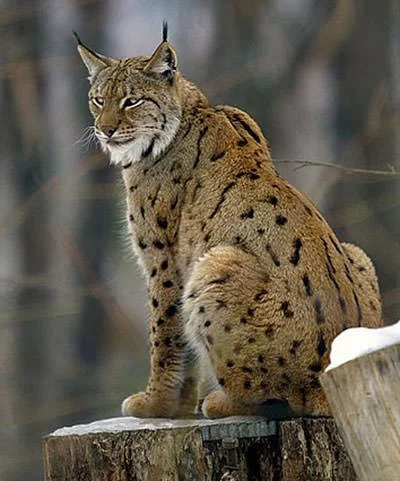
#7 Demeter and Poseidon
Poseidon was the ancient Greek God of the sea, earthquakes and horses. Poseidon once tried to pursue Demeter but she rejected his love and tried to hide from him by turning herself into a mare. She then joined a herd of horses of King Onkios to disappear in the mix. However, she couldn’t conceal her divinity even in the form of a mare. Poseidon realized this and tricked Demeter by transforming himself into stallion and joining the herd. He then forced her to mate with him. Demeter was furious due to the assault and she retreated into a cave in order to purify herself. Her absence caused the death of crops and of livestock thus leading to a universal famine. Ultimately, she washed away her anger in the River Ladon. As a result of having intercourse with Poseidon, Demeter gave birth to a daughter named Desponia and to Arion, a horse with the ability to speak human language.
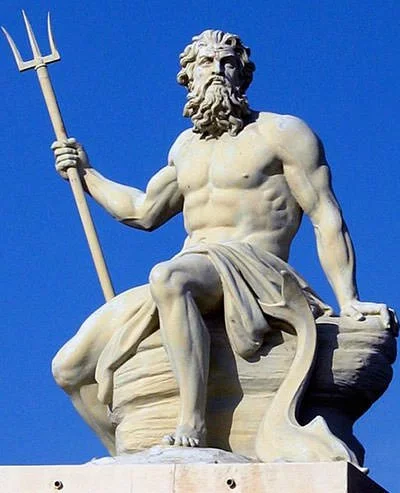
#8 Demeter And Erysichthon
Erysichthon was a King of Thessaly. He is sometimes called Aethon. According to myth, Erysichthon ordered the cutting down of all trees belonging to the sacred grove of Demeter. Amidst all the trees, there was a huge oak tree which was solely dedicated to Demeter and was covered with votive wreaths, a symbol of every prayer Demeter had granted. Erysichthon’s men refused to cut it down out of respect for the goddess. However, Erysichthon grabbed an axe and cut it down himself, killing a nymph in the process. Demeter was extremely angry due to this incident. She punished the king by calling upon Limos, the goddess of starvation. Limos, being the spirit of unrelenting and insatiable hunger, entered the stomach of Erysichthon and made him perpetually hungry. As a result, the more the king ate, the hungrier he became. Fuelled by hunger, Erysichthon sold all his possessions to buy food but he still couldn’t satiate his hunger. He even sold his own daughter, Mestra, into slavery to make more money to feed himself, but no amount of food was enough. Eventually, Erysichthon began to eat his own flesh, and continued eating until he died.
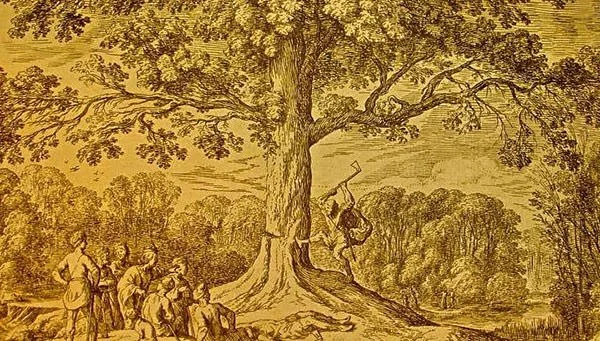
#9 Demeter And Iasion
In Greek mythology, Iasion was the son of the nymph Electra and Zeus. Demeter fell in love with Iasion at the wedding of Cadmus and Harmonia in Crete and lured him away from the marriage celebration. The two then went on to have intercourse in a freshly ploughed furrow with Demeter lying on her back. When the two returned to the wedding celebration, Zeus guessed what had happened by seeing the mud on the backside of Demeter. He was furious with envy and he slew Iasion with a thunderbolt that killed him immediately. Demeter went on to bear twin sons due to her short affair with Iasion. They were named Ploutos and Philomelus. While Ploutos is the Greek god of wealth; Philomelos is a minor Greek demi-god, patron of husbandry, ploughing and agriculture.
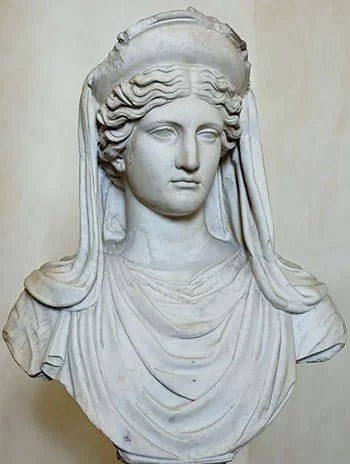
#10 Demeter In The Trojan War
The Trojan War was waged against the city of Troy by the Achaeans (Greeks). It began after Paris of Troy abducted Helen from her husband Menelaus, the king of Sparta. Though Zeus ordered the Gods and Goddesses to remain neutral in the Trojan War, many of them did side with either the Greeks or the Trojans. Demeter had romantic involvement with Iasion as mentioned above. The Trojans were descendants of Iasion’s brother, Dardanus; and thus Demeter wanted Troy to win the war. However, she remained relatively neutral in the war. The Trojan War is covered in many works of Greek literature, most famously Homer’s Iliad. As Demeter had little part to play in the war due to her neutrality, she is mentioned only a little bit in the Iliad.

